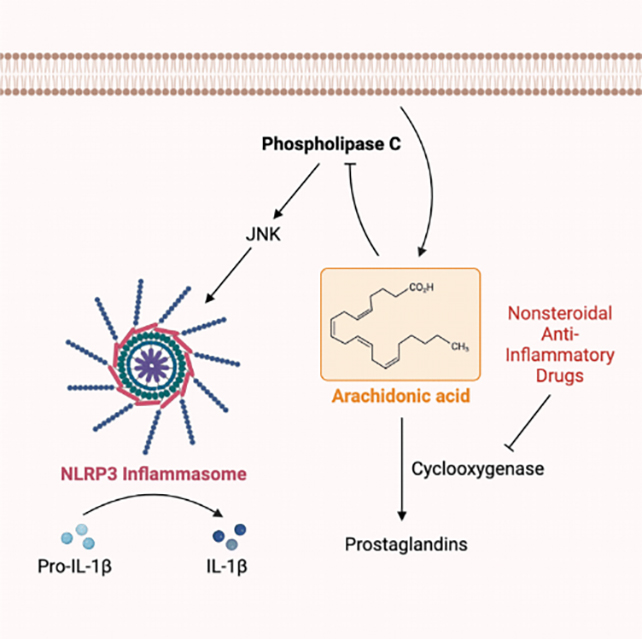Our immune system offers essential protection to our body, summoning chemical agents and cellular assassins to sites of damage in skirmishes we experience as inflammation.
Unfortunately a range of factors can trigger inflammation into going awry, leaving a trail of collatoral damage. Adhering to a high calorie Western diet, for example, is known to risk an inflammatory syndrome that underpins a variety of health conditions.
Previous research has shown that fasting can help protect against inflammation, so a team of researchers led by scientists from the University of Cambridge in the UK took a closer look at this association and how it might be happening.
By studying blood samples from 21 volunteers who were asked to eat a 500-calorie meal, abstain from eating for 24 hours, and then eat another 500-calorie meal, the researchers identified a rise in a compound called arachidonic acid as a result of fasting.

Arachidonic acid is a fat that has been linked to inflammation before, though it was thought that arachidonic acid increased rather than decreased inflammation levels.
"This provides a potential explanation for how changing our diet – in particular by fasting – protects us from inflammation, especially the damaging form that underpins many diseases related to a Western high calorie diet," says immunologist Clare Bryant, from the University of Cambridge.
The team ran tests on cells cultured in the lab, finding that arachidonic acid turned down the activity of a protein complex called the NLRP3 inflammasome.
Inflammasomes, as the name suggests, are mechanisms that trigger inflammation. Those like NLRP3 are sort of alarm bells that tell the immune system to rush into action – too aggressively and for too long a period, in some cases – and it seems this is the route through which fasting is keeping inflammation down.
This raises a number of interesting connections, not least that aspirin is also known to interact with NLRP3, and that the inflammasome is also wanted for questioning by scientists in regards to diseases like Alzheimer's.
"What's become apparent over recent years is that one inflammasome in particular – the NLRP3 inflammasome – is very important in a number of major diseases such as obesity and atherosclerosis, but also in diseases like Alzheimer's and Parkinson's disease," says Bryant.
Put the pieces together, and it's possible that the way that fasting suppresses inflammation could ultimately guard against brain degeneration, but plenty more research will be required to confirm the link.
"It's too early to say whether fasting protects against diseases like Alzheimer's and Parkinson's disease as the effects of arachidonic acid are only short-lived, but our work adds to a growing amount of scientific literature that points to the health benefits of calorie restriction," says Bryant.
The research has been published in Cell Reports.
